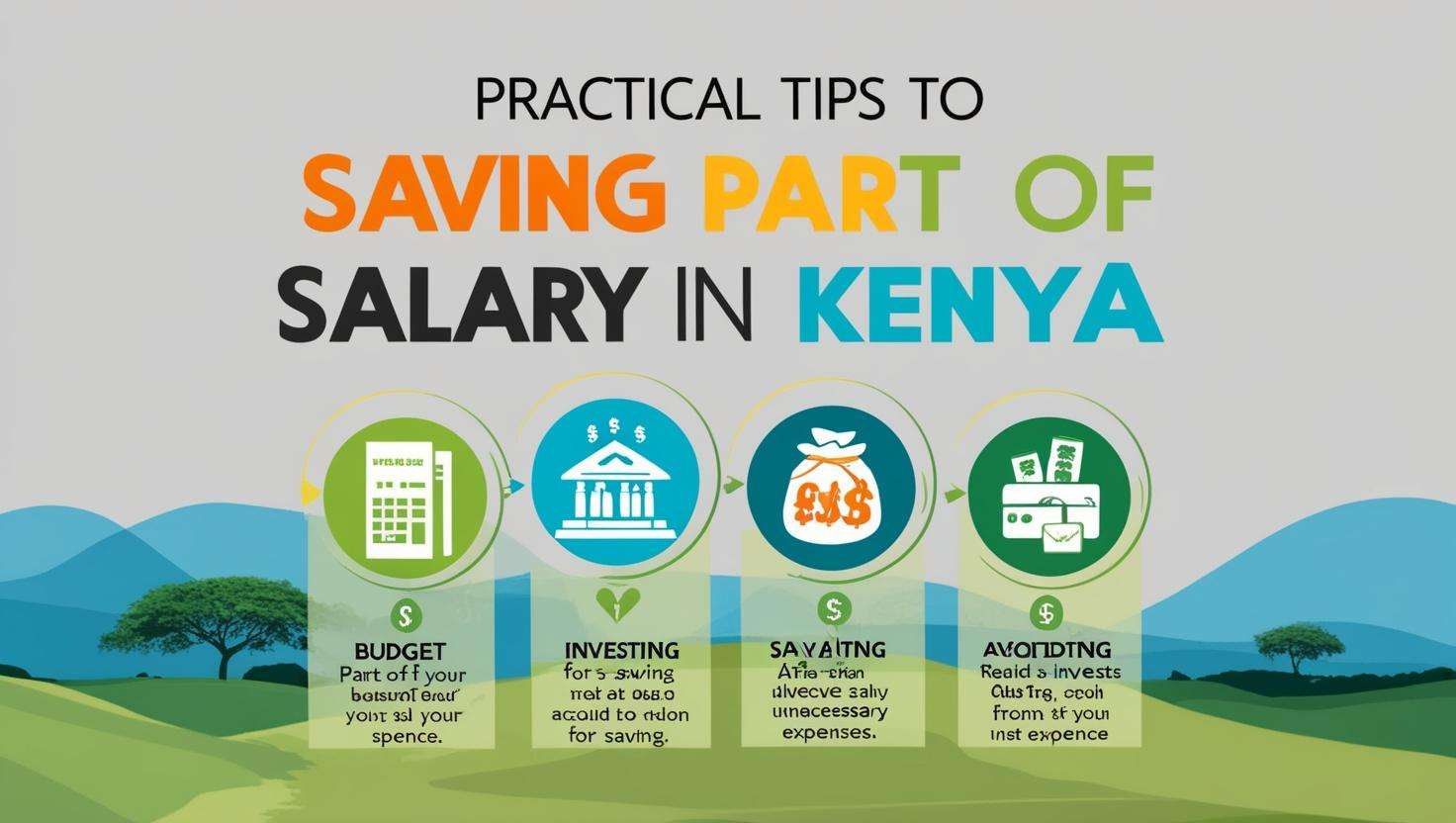Managing finances effectively is crucial for achieving financial stability and future security. In Kenya, where the cost of living can be high, it’s essential to adopt practical strategies to save a portion of your salary each month. This article provides actionable tips to help you save part of your salary consistently.
1. Create a Realistic Budget
Understanding your income and expenses is the first step toward effective saving.
a) Track Your Income and Expenses
Begin by documenting all sources of income and categorizing your expenses. This practice will help you identify areas where you can cut back and allocate more funds toward savings.
b) Implement the 50/30/20 Rule
Allocate your income as follows:
- 50% for necessities (rent, food, utilities)
- 30% for discretionary spending (entertainment, dining out)
- 20% for savings and investments
This method ensures a balanced approach to spending and saving.
2. Automate Your Savings
Setting up automatic transfers can make saving effortless.
a) Set Up Standing Orders
Arrange for a portion of your salary to be automatically transferred to a savings account or investment fund each month. This ensures consistency and reduces the temptation to spend.
b) Utilize Mobile Banking and Savings Apps
Leverage mobile banking platforms and savings apps that allow you to set savings goals and track your progress. These tools can provide reminders and incentives to keep you on track.
3. Reduce Unnecessary Expenses
Cutting down on non-essential spending frees up more money for savings.
a) Evaluate Your Spending Habits
Review your expenses to identify and eliminate unnecessary costs, such as frequent dining out or subscription services you rarely use.
b) Adopt a Frugal Lifestyle
Consider cost-effective alternatives, like cooking at home, using public transportation, and shopping during sales or in bulk.
4. Increase Your Income Streams
Supplementing your salary can accelerate your savings.
a) Start a Side Hustle
Explore opportunities like freelancing, online businesses, or part-time jobs that align with your skills and interests.
b) Invest in Skill Development
Enhancing your skills can lead to promotions or better-paying job opportunities, increasing your overall income.
5. Join Savings and Investment Groups
Collective saving methods can be highly effective.
a) Participate in Chamas
Join a merry-go-round savings group where members contribute a fixed amount regularly, and the lump sum is given to one member in rotation. This encourages disciplined saving and provides access to larger sums of money when needed.
b) Enroll in a SACCO
Savings and Credit Cooperative Organizations offer members the opportunity to save regularly and access loans at favorable terms. They often provide better interest rates on savings compared to traditional banks.
6. Set Clear Financial Goals
Having specific objectives motivates consistent saving.
a) Define Short-Term and Long-Term Goals
Whether it’s building an emergency fund, buying a home, or planning for retirement, clear goals provide direction and purpose for your savings efforts.
b) Monitor and Adjust Your Goals Regularly
Regularly review your financial goals and adjust them as needed based on changes in your income, expenses, or personal circumstances.
7. Educate Yourself on Personal Finance
Knowledge empowers better financial decisions.
a) Attend Workshops and Seminars
Participate in financial literacy programs to enhance your understanding of money management, investments, and savings strategies.
b) Read Books and Online Resources
Utilize books, blogs, and online courses focused on personal finance to continually improve your financial acumen.
Conclusion
Saving a portion of your salary each month in Kenya requires discipline, planning, and informed financial choices.
By implementing these strategies, you can work towards financial stability and achieve your long-term financial goals. Remember, the key is consistency and making conscious decisions that align with your financial objectives.
'Want to send us a story? Submit to NAIROBIminiBLOGGERS via our Email nairobiminiblogger@gmail.com'

Drop Your Comments, What do you think About The Article?